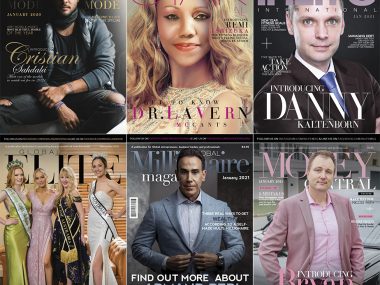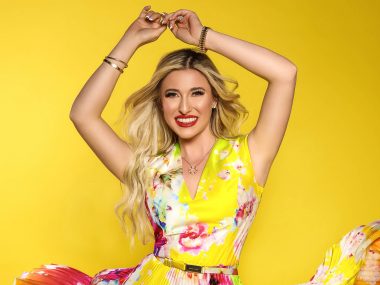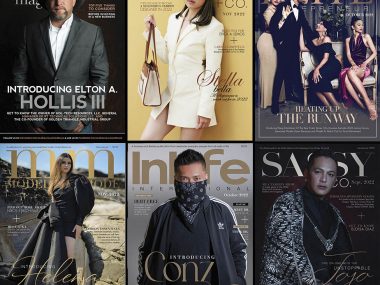In the tapestry of Hollywood, where versatile talent shines, actress Nicki Micheaux has graced the screen in numerous notable roles, from “Lincoln Heights” to “Animal Kingdom.” However, now she’s taken a bold step into new territory, wielding the pen and camera to write and direct her first feature film, “Summer of Violence.” This remarkable endeavor, lauded as one of BET’s Top 10 ABFF Films, recently illuminated the 2023 ESSENCE Festival of Culture® Festival’s inaugural film festival.
Micheaux’s directorial debut is nothing short of profound—a stirring coming-of-age narrative that not only marks her transition from actress to director but also showcases her talents as a skilled storyteller. Her name is synonymous with quality, given her standout roles in the acclaimed television series “Lincoln Heights.” However, with “Summer of Violence,” Micheaux dons a dual hat, both helming the film and crafting its captivating script.
Micheaux’s journey to the director’s chair wasn’t devoid of learning and evolution. While honing her craft, she delved into the esteemed Sundance Collab classes, where she nurtured her writing skills. Her thirst for knowledge and growth further led her to the Disney Directing Program from 2010-2012, an experience she attributes to equipping her with the know-how needed to venture into the world of feature filmmaking.
In the tapestry of “Summer of Violence,” a constellation of distinguished actors shines brightly. The likes of Kasey Inez (“The Sex Lives of College Girls”), Jahking Guillory (“The Chi”), Pedro Correa (“The Middle”), Maduhlika Krishnan (“F.U. Woody Allen”), and Damon Gupton (“Black Lightning”) contribute their remarkable talents to breathe life into this poignant narrative.
Set against the backdrop of 1993, “Summer of Violence” emerges as a coming-of-age tale that explores love amidst a tumultuous period. The story revolves around Naomi (played by Kasey Inez), a college graduate whose decision to forgo law school in favor of her passion for poetry sparks a conflict with her father. Disowned and surrounded by violence, Naomi finds her voice through her verses, using poetry to resist the grip of violence. In this narrative, Frank (Jahking Guillory) portrays an artist whose tenuous ties to the streets intersect with Naomi’s journey. The film doesn’t merely unfold; it lifts the veil on Black love, joy, and familial bonds, underscoring the tenacity of hope even in the bleakest times.
Micheaux’s illustrious career brims with a plethora of remarkable performances. One of her standout roles includes her portrayal of Jenn Sutton in the award-winning television series “Lincoln Heights” on ABC Family. Fuelled by her versatility and fervor, she’s embarked on an inspiring partnership with bestselling author and global investor, Johnny Wimbrey. Together, they’ve birthed Three60 Films, a visionary media company with a mission to share authentic stories that echo the experiences of women and people of color.
In “Summer of Violence,” Nicki Micheaux not only introduces herself as a director but also elevates her journey from actress to storyteller, leaving an indelible mark on the cinematic landscape. As she continues to evolve and shape narratives that resonate, Micheaux’s foray into directing promises a future illuminated with even more tales of depth, emotion, and authenticity.
StarCentral Magazine recently secured an exclusive tête-à-tête with the multifaceted Nicki Micheaux, delving into her enthralling journey through the labyrinth of the entertainment industry. Here’s what went down:
Can you share your journey from being an accomplished actress to transitioning into writing and directing your first feature film, “Summer of Violence”?
This was a story I had wanted to tell for a long time. At the beginning of my career, I felt I had to focus on acting. But over time, the call to write this story got louder. Finally, I answered that call. It took many years to get on that set, finally. I took writing classes. I studied directing and even got the chance to participate in the ABC Disney Directing program. I studied producing at UCLA, all while still working as an actor. It was thrilling. When the chance finally came to get the funding, I felt so prepared to do this film.
What inspired you to delve into the world of writing and directing, and how did you approach the creative process for this project?
Quite simply, the shortage of material for Black women. I didn’t want to complain; I kept thinking, “What can I do about this?”. I always knew I would write and direct. It was just a matter of time. I really want to create the kinds of roles and stories that I’d like to work on.
“Summer of Violence” has been receiving recognition and accolades, including being listed on BET’s Top 10 ABFF Films and screening at the 2023 ESSENCE Festival of Culture®. How does it feel to see your work being appreciated by audiences and the industry?
I think this is every artist’s dream! At least it’s been mine. Thrilled that they liked the film.
As a director and writer, what themes or messages did you aim to convey through “Summer of Violence,” and how did you incorporate them into the film?
It’s really a story about the ripple effects of violence on everyone. Even if you’re not a victim, you can escape the impact of violence.
Can you tell us about your experience studying in Sundance Collab classes and participating in the Disney Directing Program and how those experiences influenced your directorial approach in this film?
Yes, in the Sundance collab, I worked on the script, which helped me hone in on the story. Really focus on the characters and dive deep into them. They also taught me how to write fast (laughs). With the Disney program, I was shadowing top veteran directors. I got to see every aspect of filmmaking. That and my years of working as an actor in front of the camera prepared me for being on set.
As a debut director, what were some challenges you faced during the filmmaking process, and how did you overcome them?
Time and money were always short. Being clear about what I wanted. Picking which battle was worth fighting for. Which shot was a Must-Get? Being clear about what I could compromise on and couldn’t is how I got through every day.
“Summer of Violence” is described as a profoundly moving coming-of-age narrative. What drew you to this particular story, and what do you hope audiences take away from watching the film?
I wanted to tell a story about a young black woman trying to find herself. I wanted the audience to empathize with women’s struggles and the trauma that often comes with coming of age.
How did your background in acting and producing inform your directorial style, and did it present any unique advantages during the filmmaking journey?
Ha yes! I think being an actress was like my secret weapon. In many ways, I felt so comfortable on set and producing. I’m used to all the moving parts. At least I was comfortable enough to work my way through new things. I was definitely not intimidated by the process. I felt very ready.
Now that “Summer of Violence” is being showcased to audiences, what are your future aspirations in the realm of writing and directing? Do you plan to continue exploring this side of your career?
Absolutely! I still want to tell big stories. I write constantly and honestly can’t wait to get back behind the camera. Although next time, I think I’ll jump in front of the camera as well.















